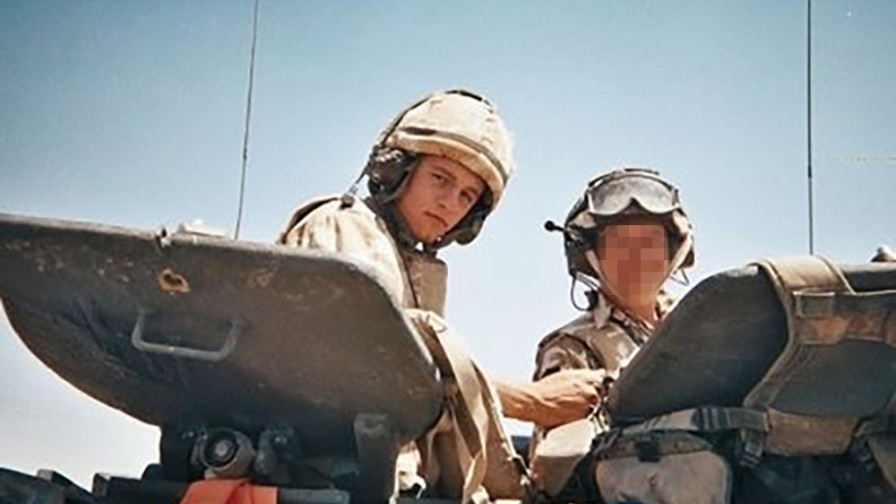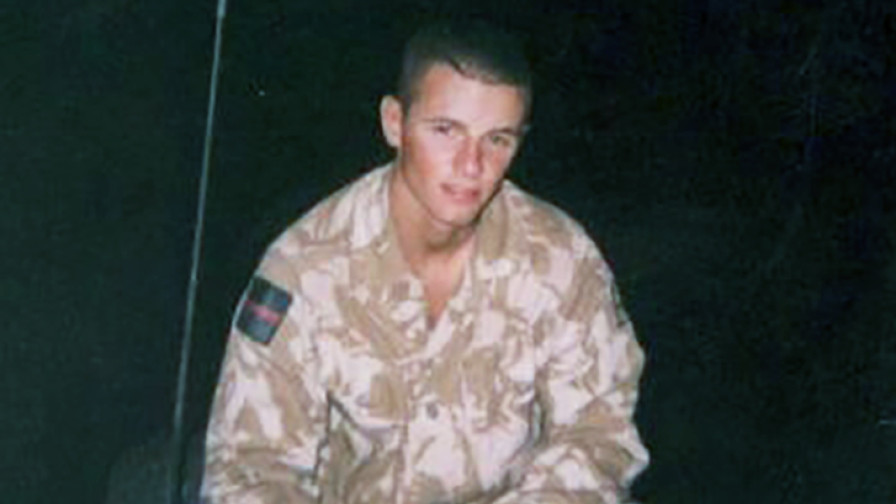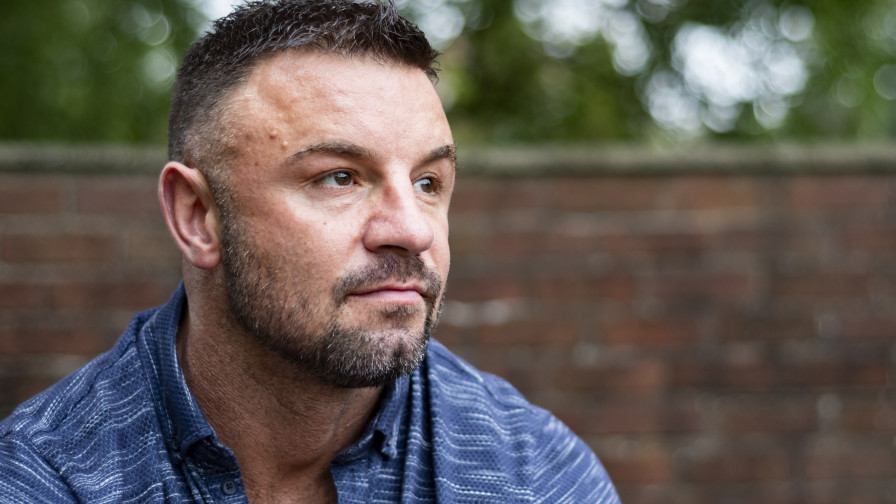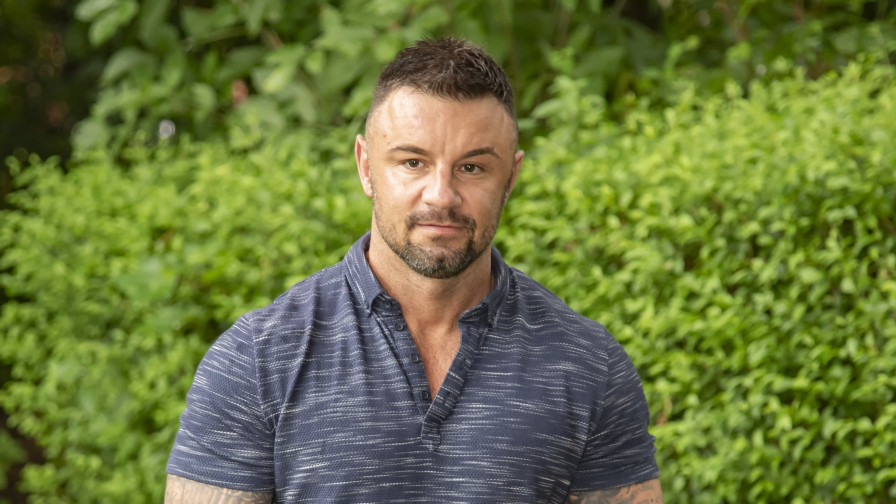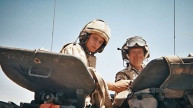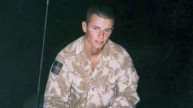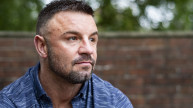Andy's Story
“Veterans should contact Combat Stress, 100%. They were the one for me.”
Andy spent seven years in the Army, serving in Iraq as part of Operation Telic 2 and then in Afghanistan. A decade after leaving the military he started to experience mental health issues, so turned to Combat Stress for help.
Andy joined the Army aged 17 in 2000, starting off with a year-long Army foundation course at Harrogate before joining the King’s Regiment (which later became the Duke of Lancaster Regiment) and trained as a sniper.
“I was sent to Iraq for the first time in 2003,” he says. “Reality kicked in then, all the training I’d been doing was going to be put to the test. I remember getting off the plane in Iraq and being hit by heat. I thought it was heat from the plane’s engine, but it wasn’t.
“I was 21, only young but not as young as some who went. I was apprehensive but when you get over there it becomes your normal life, because you’re doing normal things like having breakfast. You almost get complacent, then you realise you could be attacked at any second.”
However, the realities of Army life in Iraq soon started to hit home for Andy.
“When people started to not come back off patrol or when you were on patrol and got attacked, it all became real to me,” he says. “You’d be talking to someone and the next minute they were gone. If you were in charge of that patrol you took some of the blame.”
Andy says his trauma comes from several different events from his time in the Army, including an incident where lives depended on a split-second decision.
“When you’re a sniper and you get sent somewhere, you make the decisions,” he says. “You have someone with you there as your spotter, but you make the call. There was a time in Iraq where I had to make a quick decision about whether to act and my spotter didn’t agree with me. I took it into account but decided to take the shot. It was hard but if I hadn’t, our soldiers would have died – I’m certain of that. I had to look at the bigger picture. But it ruined us both and a couple of weeks later my spotter killed himself.
“What happened to me in Iraq didn’t really affect me at the time, I just carried on. You don’t have time to think about it and mental health in men wasn’t a big thing back then.”
Andy left the Army in 2007 and went back to Manchester, where he grew up. It took a while to settle into civilian life, but 10 years after leaving the Army he started to experience mental health issues.
“I was having dreams where I was covered in blood and they seemed so real,” he says. “Even on nights out I’d see things that weren’t really there, then I wouldn’t go home. I was just in self-destruction mode.
“I’d never really been a drinker, but I was drinking loads and taking drugs for a bit, which was when the anger would come out. I was over the top angry - never violent towards anyone else, but I’d break doors and wardrobes and even put a knife through my hand once.”
In 2022 a friend’s girlfriend suggested Andy called Combat Stress. Recognising he needed help, he called our Helpline a couple of weeks later, before being diagnosed with PTSD. He went on to have online treatment, including our Cope Using Your Senses group, which is aimed at supporting veterans in managing their symptoms. “I have a grounding pebble now,” Andy says. “I respond well to smells, so I have a ridiculous aftershave collection as it helps me. I go to the gym before work too - I have all these things in place to help now and I do them even if I’m not going through anything.”
After the groups Andy had 1:1 trauma focused therapy sessions with one of our expert clinicians. “I didn’t want to do it,” he says. “I didn’t want to talk to anyone as I didn’t think I was ready. I was a bit scared, but once I start something I see it through. My clinician became part of what I considered my home network and, in the end, I didn’t want to part ways with her.
“She taught me a lot and made sure I speak to my wife, Toni, about everything. I’d been having therapy for a while but hadn’t been letting Toni in, so I opened up to her and told her everything. That’s when I started to recover - Toni has been my rock throughout everything.”
Andy has now completed treatment and accepts PTSD as part of who he is. “I’m more relaxed and I’m not as angry or aggressive as I was - not even close,” he says. “I’m a better, calmer person. I’m a mental health first aider now and I’m keen to be involved with Combat Stress’ National Veterans’ Voice group.
“Veterans should contact Combat Stress, 100%. They were the one for me.”
August 2024

